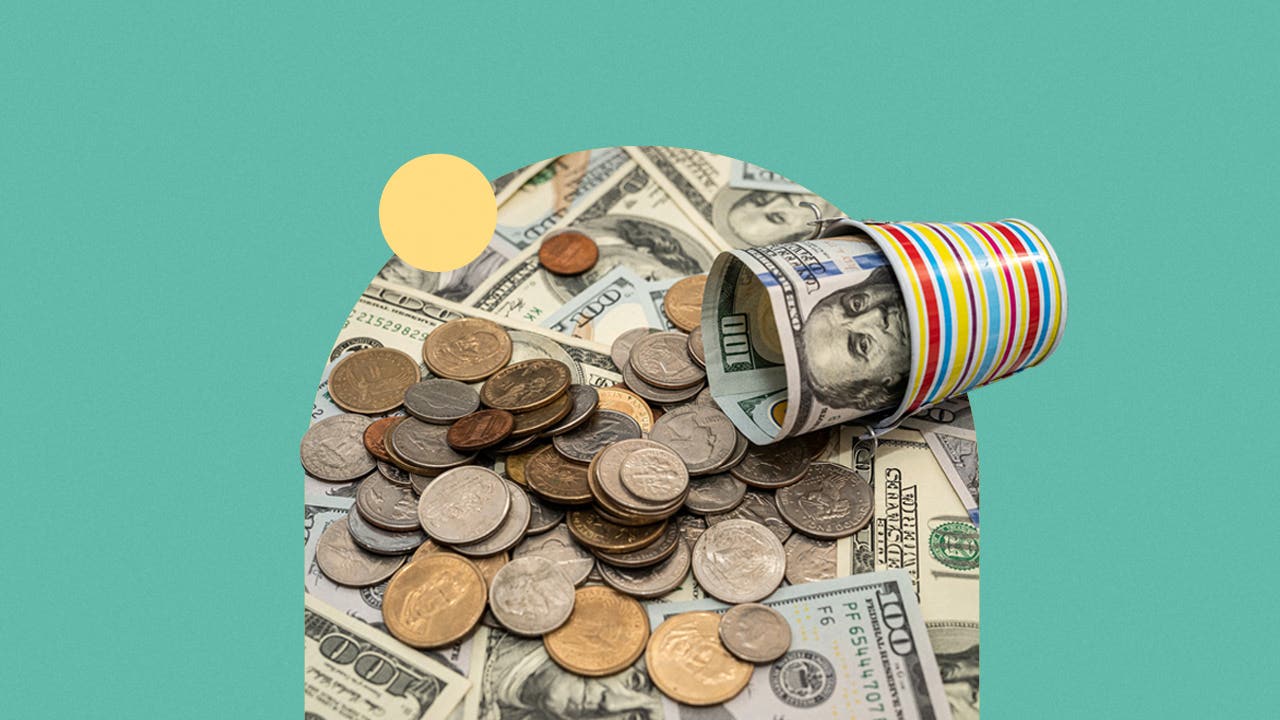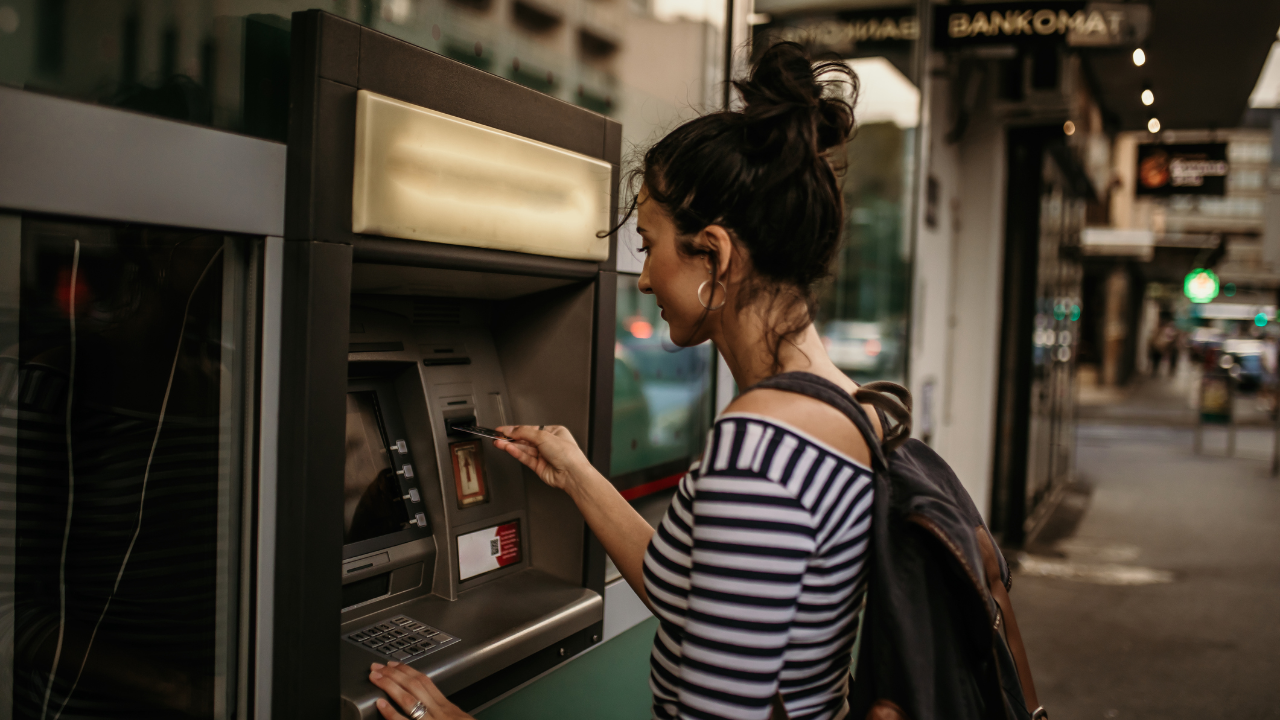How to exchange coins for cash without the hassle




Key takeaways
- Banks and credit unions often offer free coin exchange services for customers, while charging small fees for non-customers.
- Coinstar machines charge up to 12.9 percent plus a 99-cent flat fee but are widely available at grocery stores and retailers.
- Rolling coins yourself is the most cost-effective method, requiring only paper wrappers that banks provide for free.
- Many retailers accept rolled coins for purchases, eliminating exchange fees entirely.
To exchange your coins for cash, you can either visit your bank or credit union, use a Coinstar machine, or roll the coins yourself. The key is choosing the right method based on how much time you want to invest and what fees you’re willing to pay. Here are the most effective options for converting your coins into spendable cash.
Where can I exchange my coins for cash?
Several establishments offer coin exchange services, each with different fee structures and convenience levels. The most common options include banks and credit unions, retail chains with coin-counting machines and specialized kiosks like Coinstar.
Community banks and credit unions
Your first stop should be your own bank or credit union to see if it offers free coin exchange. Most banks will accept rolled coins to deposit, but many big banks have phased out their coin-counting services for loose coins in recent years. U.S. Bank is an exception — though its coin counters are only available to customers. Regional banks and credit unions often still provide coin counters. There may be a small fee for non-customers to use the bank’s coin-counting services, typically ranging from $5 to $10.
While many large national banks have phased out coin-counting services in recent years, regional banks and credit unions often still provide them. There may be a small fee for non-customers to use the bank’s coin-counting services, typically ranging from $5 to $10.
Read more: The best regional banks of 2025
Local retailers
Many retailers offer self-checkout stations that accept coins, making it easy to spend your change directly. Some gas stations, such as QuikTrip, also offer coin-exchange machines that you can use to exchange coins for cash on the spot.
Retailers that commonly offer coin-exchange services include Walmart, Food Lion Hannaford, Kroger, Ralphs, Meijer, Safeway and Winn-Dixie. However, availability varies by location, so it’s best to call ahead or check online to confirm services.
Coinstar kiosk process and fees
Coinstar machines are the most widely available option for coin counting, found in thousands of grocery stores, pharmacies and retail locations across the country. While convenient, they come with significant fees that can eat into your coin value.
To use a Coinstar machine, pour your loose coins into the machine’s tray. It automatically sorts and counts them. The machine provides a receipt that you can redeem for cash at the store’s customer service desk or checkout counter. Bankrate editor Pippin Wilbers recently brought a pint jar of loose change to a Coinstar machine.
“It was loud, but it had the coins sorted in under five minutes,” he reported.
The catch is, Coinstar charges a fee of up to 12.9 percent of your total coin value, plus a flat fee of 99 cents per transaction. These fees can vary by location. For example, if you exchange $50 in coins, you could pay up to $7.44 in fees ($6.45 + $0.99), receiving only $42.56 in cash.
How to avoid Coinstar fees
You can avoid the fee by opting to receive your coins’ value as a gift card instead of a cash voucher. Options include major retailers including Home Depot and Cabela’s, chain restaurants such as Applebee’s, delivery service DoorDash, Southwest airlines and more. However, each option has a minimum amount that you can load your gift card with — from $3 at Home Depot to $25 at Southwest. That’s a lot of pennies and nickels.
Yes — even though the Treasury Department will cease producing pennies once it runs out of penny blanks, a penny is still valid currency and accepted at Coinstar machines. However, the machines cannot accept 1943 steel pennies.
Roll your coins for easier spending
Rolling coins is a cost-effective way to make exchanging or spending them much easier. Many banks give out coin wrappers for free, and cheap packs can be found in various sizes at dollar and office-supply stores, as well as Amazon.
If you have young children who are trying to learn math, you can use the coin wrappers as a teaching tool. Between all the pennies, nickels, dimes and quarters you’ve collected, kids can practice counting and begin to understand basic money values.
Each coin wrapper holds a specific amount: 50 pennies ($0.50), 40 nickels ($2.00), 50 dimes ($5.00) or 40 quarters ($10.00).
If you prefer not to roll coins manually, electronic coin sorters are available at office supply stores, Walmart and Amazon. These machines can speed up the process significantly, though they require an upfront investment of $20 to $100 depending on features.
Alternatives to coin exchange
If traditional coin exchange methods don’t meet your needs, several alternatives can help you convert coins into usable funds or get value from them in other ways.
Using coins for purchases
One often-overlooked option is simply using your coins for everyday purchases. Most retailers readily accept rolled coins, and this approach eliminates exchange fees entirely while reducing the cash burden on businesses that need coins for change.
Rolled coins are particularly useful for:
- Grocery shopping and everyday purchases
- Paying bills at customer service desks
- Purchasing money orders or cashier’s checks
- Making deposits at your bank
When using rolled coins for purchases, ensure they’re properly counted and securely wrapped. Most businesses will accept them at face value without verification, but poorly wrapped coins may be rejected.
Donate to charity
Coinstar offers the option to donate your coins directly to charity, with the company retaining a processing fee of 10 percent for national charities and 7.5 percent for regional ones. Charity partners include World Wildlife Fund, United Way, UNICEF, Feeding America, American Red Cross and Make-A-Wish Foundation.
Charitable donations are tax-deductible, even when made with spare change, so keep your receipt for tax purposes. This option provides a meaningful way to use accumulated coins while potentially offering tax benefits.
Sell valuable coins
Before exchanging all your coins, take time to examine them for valuable or rare collectible coins that could be worth significantly more than face value. According to coin experts, key factors that determine value include:
- Coin condition: Well-preserved coins without scratches or wear command higher prices.
- Mintage numbers: Coins produced in smaller quantities are often more valuable.
- Minting errors: Coins with missing elements, double strikes, or other errors can be extremely valuable to collectors.
- Age and rarity: Older coins, especially those from discontinued series, may have collector value.
Consider having potentially valuable coins appraised by a professional before exchanging them. Even common-looking coins might be worth hundreds or thousands of dollars to collectors.
Keep coins for future use
Rather than exchanging all your coins immediately, consider maintaining a small coin collection for:
- Parking meters and toll booths that still accept coins
- Laundromats and vending machines
- Emergency situations where exact change is needed
- Teaching children about money and saving
Store organized coins in labeled containers or coin banks to keep them accessible when needed.
Bottom line
Cashing in your spare coins can be an easy way to treat yourself or contribute to an emergency fund in a place such as a high-yield savings account.
To exchange coins for bills, try taking them to a local bank or retailer that offers coin-counting services. With some coin-counting machines, like Coinstar, you can also exchange coins for gift cards for free or donate your spare change to charity. Don’t forget that coins can be used for purchases, too — just roll them up and use them like you would bills.
Why we ask for feedback Your feedback helps us improve our content and services. It takes less than a minute to complete.
Your responses are anonymous and will only be used for improving our website.




